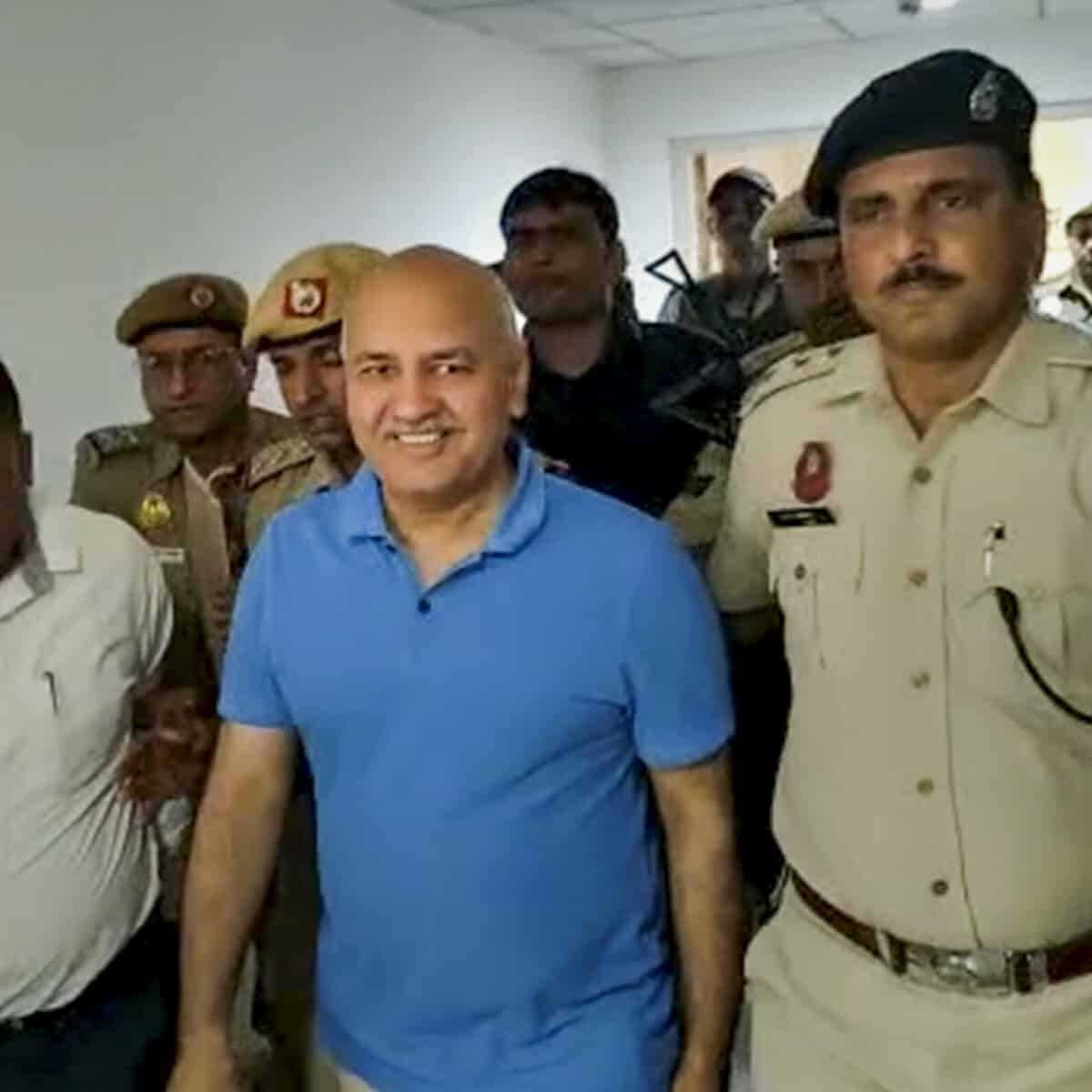
Former Delhi deputy chief minister Manish Sisodia was granted bail by the Supreme Court on Friday morning, 18 months after his arrest by the CBI in connection with the excise policy ‘scam’ case.
In a notable ruling, Justices BR Gavai and KV Viswanathan emphasized that Sisodia was entitled to a “speedy trial” and stated that it would be a “travesty of justice” to return him to a trial court.
The court also highlighted that keeping Sisodia incarcerated for an “unlimited time” infringes upon his fundamental rights.
Justice Gavai remarked on the excessive duration of his incarceration without the trial even commencing, underscoring the deprivation of his right to a speedy trial.
‘In the matter of liberty, every day counts’
“In the matter of liberty, every day counts,” remarked Justice Gavai-led Bench. On Tuesday, the Bench, also comprising Justice K.V. Viswanathan, reserved its judgment after hearing the oral arguments raised by Additional Solicitor General (ASG) S.V. Raju, representing the central agencies, and senior advocate Abhishek Manu Singhvi, who appeared on Sisodia’s behalf.
During the hearing, the CBI and the ED told the apex court that a Rs 100 crore bribe was demanded by the Aam Aadmi Party (AAP) for the Goa elections, out of which Rs 45 crore has been traced in the course of the investigation.
“A Rs 100 crore bribe was demanded to be used for Goa elections. Out of which we have been able to trace 45 crore. We have digital evidence. There is a lot of evidence,” the ASG said, adding that Sisodia was in charge of the Excise Department of the Delhi government and co-accused Vijay Nair was tasked to receive the kickbacks.
“They wanted to make money out of this exercise. There is evidence to show that this particular gentleman (Sisodia) engineered emails and told certain interns to write a particular type of email,” Raju said.
On the other hand, Singhvi contended that the AAP leader has been in custody for 17 months and should be granted bail on the grounds of delay in the conclusion of the trial. Singhvi also prayed that Sisodia be released on interim bail.
He said his wife has “a very very bad medical condition” and is “virtually like a vegetable”. In its judgment delivered on October 30 last year, the SC had denied bail to the former Deputy CM but said that if the trial proceeds slowly in the next three months, he may apply for bail afresh.
Rouse Avenue Court, Delhi HC refused bail
Special Judge Kaveri Baweja of the Rouse Avenue Court had on April 30 refused to grant bail to Sisodia who was seeking regular bail a second time.
Denying bail, the trial court order noted that delays in the case proceedings were largely due to actions attributable to Sisodia himself, dismissing his claims of undue delay.
Subsequently, the Delhi High Court denied bail to Sisodia, saying that he failed to pass the triple test for grant of bail in the corruption case and the twin conditions required under the Prevention of Money Laundering Act (PMLA), 2002.
Challenging this, the former deputy chief minister filed special leave petitions before the Supreme Court. Last month, the apex court disposed of the pleas seeking bail in corruption and money laundering cases after Solicitor General Tushar Mehta gave an undertaking that the final charge sheet/complaint in the liquor policy case would be filed by July 3.
Meanwhile, a court here extended the judicial custody of Sisodia, till August 9 in the corruption case and till August 13 in the money laundering case. He was produced through video conferencing from Tihar Jail upon expiry of the previously granted judicial custody.
(With excerpts from IANS)
